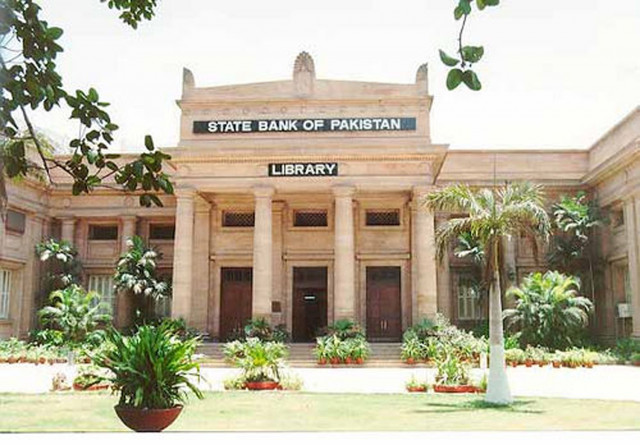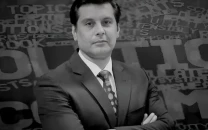SBP raises key discount rate by 50bps
The SBP on Friday announced a slight increase in its benchmark interest rate from 12.5 per cent to 13 per cent.

Yaseen Anwar, the acting governor of the central bank, said the decision to revise the policy rate by 50 basis points was taken in an effort to contain persistent inflation and continuing fiscal slippages.
Industrialists and economic experts were clearly caught off guard, as they were sure the central bank would keep the discount rate unchanged.
The private sector, according to the State Bank, has shown signs of “nascent growth and recovery” in the past year, but the government has exceeded its target of borrowing from the central bank for budgetary support as well as commodity operations and missed the target for containing the fiscal deficit to 4 per cent of GDP.
Hamza Ali Malik, director of the monetary policy department, pointed out that “average CPI inflation of 11.7 per cent during FY10 has been 2.7 per cent higher than the target and current trends and expected developments indicate risks of inflation pressures continuing in the current fiscal year”.
The central bank has stressed that “measures to increase the tax to GDP ratio and eliminate the revenue deficit of fiscal accounts are urgently required to provide a firm foundation for sustainable economic growth.
“Tax-to-GDP ratio for the outgoing fiscal year was 9 per cent,” Malik told The Express Tribune. “This is the lowest since 1968 and clearly if tax collection remains this low, the government will continue to borrow heavily.”
Without additional austerity measures and drastic reductions in government expenditures, he said, the gap between revenues and expenditures incurred by the government will continue to rise. At the same time, he termed this trend “alarming and unsustainable”. The central bank has also criticised the government for its excessive borrowing, particularly from SBP. “If government stays on the current trend it will crowd out private sector credit which will have additional pressures on interest rates in the future,” commented Malik.
“This increase in the discount rate has not been made to meet conditions of the International Monetary Fund, but to address economic imbalances such as external account deficit and inflation” said the SBP’s chief economic advisor, Riaz Riazuddin. According to him, the central bank has not deliberated over any changes in minimum returns paid by scheduled banks to consumers.
The SBP acting governor lamented that “total investment as a per cent of GDP has now declined for three consecutive years, reaching 16.6 per cent in FY10”. He also projected broad money growth to stand at 13 per cent in FY11. Government’s excessive borrowing requirement “emanates from low tax revenues, high current expenditures and shortfalls in projected external financing,” said Yaseen Anwar.
Criticism over monetary policy tightening
Independent economists and economic stakeholders alike have expressed their dissatisfaction with the decision to tighten the monetary policy. Economist A B Shahid held “administrative corruption responsible for inflation” adding that “by increasing the cost of borrowing on the back of rising power costs the central bank will exacerbate inflation”.
AKD economist Asad Farid opined, “Government borrowing will not be affected at all because politicians know that loans will only be paid back by future governments”. “Increasing the policy rate to check supply-side inflation is counter-productive and without rationale,” he added.
Published in The Express Tribune, July 31st, 2010.



















COMMENTS
Comments are moderated and generally will be posted if they are on-topic and not abusive.
For more information, please see our Comments FAQ